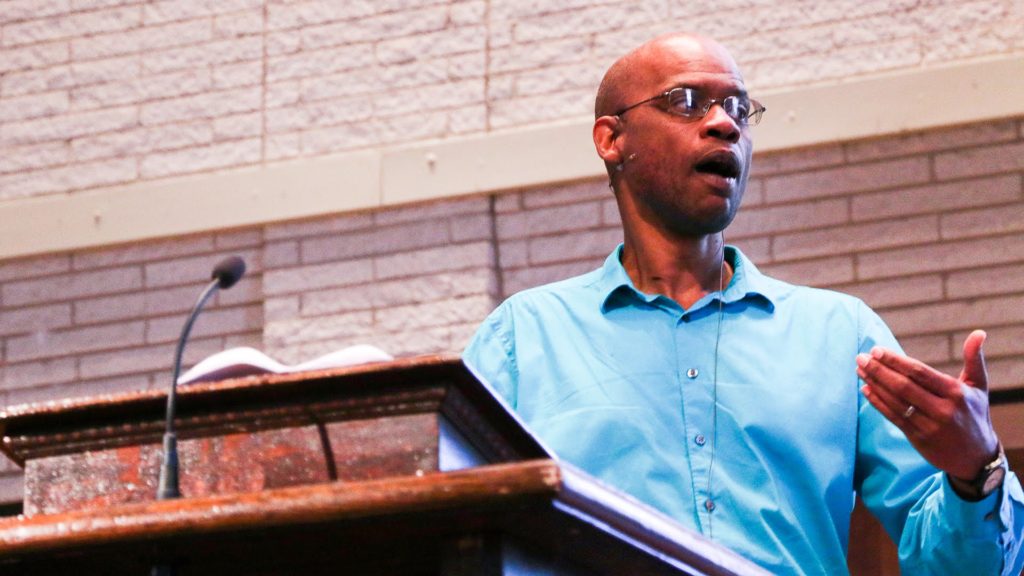Is antiracism the antidote to racial and cultural division in our country? Dr. George Yancey says there’s a better way.
We live in an extraordinarily divided world. Deep fault lines run between Americans on numerous topics ranging from religion to politics to morality and beyond. In these cultural debates, one of the most complicated issues is the legacy of racism in our country. Like you, I often have been lost in the multitude of voices and struggled to find a reliable source to help me navigate this conversation.
I thank God that I finally found a trustworthy guide in Dr. George Yancey. Dr. Yancey is a sociologist of religion at Baylor University and has been writing on race and racial reconciliation for decades. As a Christian scholar, he writes from a biblical perspective, informed by expert research. He is a critic of both the antiracist and colorblindness approaches to dealing with racism. I had the privilege of interviewing Dr. Yancey about his criticisms and am thrilled to share some of his thoughts here.
Antiracism is the most touted position on racial issues in mainstream media today. However, it’s also fiercely debated and opposed by others. What is antiracism?
There are different ways of looking at it, and it’s possible for anyone to object to a definition that I give as not adequately describing them. So, I did my best to read multiple antiracist authors and see what strands hold them together. I came away with three major principles. The first is that racism is systemic and multifaceted. All antiracism proponents believe that racism is embedded in society (though opinions as to the degree may vary from one antiracist to another), and that it is not just an individual problem. Racism pervades all aspects of society and institutions.
The second major strand is that most, if not all, antiracists argue that we must be proactive in addressing and countering racism. It’s not acceptable to just sit back and acknowledge that racism is “out there.” In fact, Ibram X. Kendi argues that there is no such thing as “non-racists.” He says that you’re either a racist or an antiracist. This is because racism isn’t just hating people of color, but it is participating (knowingly or even unwittingly) in systems of racism. Antiracists argue that it’s not just about our intent.
Third, the role of whites in antiracism is to support the efforts of people of color. Even if antiracist authors vary in how they say this, it’s clear that they believe whites are not their equals in dealing with racism since whites have been the beneficiaries of racism and do not appropriately understand it. As such, their role is to support people of color in their struggle to undo racism. While I agree with some of the first two principles, I think it is the third tenet that is the most problematic.
Explain this a bit further. What do you agree and disagree with in the first two principles, and what makes the third one the most problematic?
I generally agree that racism is pervasive in that it has shown up in culture and society where those who shape culture have allowed it to infiltrate attitudes and practices. Some antiracists go too far with their arguments of the pervasiveness of racism, seeing racism where it does not exist. But I agree with this premise in principle.
I also agree that we must make a deliberate effort to resist racist tendencies both personally and corporately. Again, I accept that some antiracists can go too far, wanting us to focus all of our social justice efforts on issues of race. I will not go that far, but I generally agree with this premise in principle.
The third principle is very problematic because it shuts down conversation rather than encouraging it. Both my research and personal experience show that shutting down conversations from whites builds resentment and backlash rather than any degree of reconciliation. The role of whites cannot be relegated to merely “obeying” people of color but it must include engagement with people of color in a respectful and active listening manner.
You argue that some antiracist sentiments and solutions are more extreme and problematic than others. How?
I’d argue that for a couple of reasons; one is social position and the other is ideology. For example, Robin DiAngelo, author of “White Fragility,” has sold many books, but I don’t see her trying to lead a revolution. On the other hand, Kendi’s books talk about how antiracism can basically save the civil world. Furthermore, he’s not just writing and speaking, he’s organizing. He recently got a $10 million grant for his Center for Antiracism at Boston University. When you get gifts like that, you can essentially continue to get unlimited funding.
DiAngelo at her worst will poison relationships, but Kendi wants to command society and government. He proposes a Department of Antiracism, a government agency with jurisdiction over federal, state and local laws. This department would have the power to alter any laws that antiracists don’t like.
Now, we might be supportive of preventing racist, discriminatory laws. For example, if someone tried to pass a law banning interracial marriage, we would want that blocked.
However, his and his proponents’ definition of antiracism is much more expansive. It includes antiracist capitalism, antiracist gender and sexuality roles and more. This Department of Antiracism would in essence be a supreme court controlled by antiracists.
Why do you think the church is just as divided as the world on these issues?
I think the church has adopted these ideas out of the world without subjecting them to a Christian critique. Some Christians say, “Just be colorblind.” It sounds good, so many believers go along with that idea. Others say antiracism is the way to go, so they ascribe to that idea. But when we act out of ideas adopted from the world, we ignore the character needed to do the difficult work of racial reconciliation. If we aren’t secure in the gospel’s promise of forgiveness in Christ, then we will be hesitant to embrace mutual responsibility and evaluate our hearts and lives.
What I think the church has not done is asked the hard question: What is it about our Christian faith that gives us a different answer than the rest of the world? Is there something about our Christian faith that gives insight that other paradigms are lacking?
We have not asked these sorts of hard questions, so instead we adopt the world’s answers and end up just as polarized as everyone else. When we decide that we’re going to really look to elements of our faith to move forward in new and refreshing ways, then we will have something to offer the rest of the world. Until then, we don’t have anything to offer that they can’t find for themselves in secular sources.
What opportunities do you see for the church to engage in this conversation? What’s the better path forward?
I’m glad you asked! I believe one of the key theological and philosophical differences between Christianity and any other worldview is the doctrine of human depravity. We are fallen creatures and we tend to find solutions that meet our needs but not the needs of others too. We need accountability to not just work for our own interests.
The way we can get past this is by having collaborative conversations. These are conversations where we talk for goal-oriented purposes, listen for understanding, don’t engage in conflict for the sake of conflict, and find solutions that everyone can live with. I think this idea is supported by both research and theology.
I am starting to see a few attempts at collaborative conversation. One such attempt is a Los Angeles program called GameChanger. It brings together police officers and citizens from the community for productive conversations. There is admittedly much we need to learn to have better conversations, but examples such as GameChanger will help us move in that direction.
Both Christianity and humanism give humans great worth. What differentiates Christianity is that, while humanism says we’re great and moving towards perfection, the Christian faith says we were made in the image of God and corrupted by human depravity. Humanists claim that humans will figure out our solutions and teach others, whereas Christians acknowledge our fallen nature and our need to learn from God first, then others before we can find those solutions. If we’re not careful, human depravity can lead to awful systems and consequences. Collaborative conversations coupled with the grace of God will foster understanding and allow us to hold each other in check. That’s a Christian path forward that I don’t think you can find in the rest of the world.
***
You can learn more from Dr. Yancey by following him on Facebook or visiting his website. This interview is an adaptation from a longer conversation that we had at my podcast “Filter: Biblical Clarity in a Confusing World.”
Copyright 2021, Aaron Shamp. All Rights Reserved












